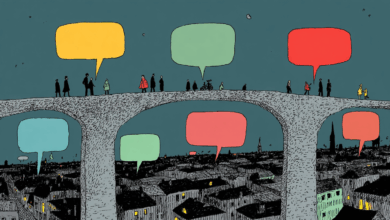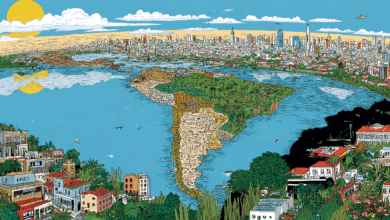Franco’s Legacy at 50

Today is the fiftieth anniversary of the death of the Spanish dictator Francisco Franco. Spain has been celebrating all year, with a calendar of educational and cultural events intended “to highlight the great transformation achieved in this half-century of democracy.” Inaugurating the “Spain in Liberty” program in January, Socialist prime minister Pedro Sánchez said: “You don’t need to have a particular ideology, to be on the left, in the center, or on the right, to regard with enormous sadness and terror the dark years of Francoism.” You don’t, but it certainly helps. “Liberty in Spain” deserves praise for innovatively addressing a complicated issue; but it has also highlighted deep-set disagreement over how Spain should confront its past—and even whether doing so is necessary.
In 1936, Franco led a rebellion against Spain’s Republican government, triggering a three-year Civil War. After winning that, he ruled Spain for almost four decades, until his death in November 1975. Franco named King Juan Carlos as his successor, expecting him to rule as absolute monarch—but the new head of state rebelled, turning Spain into a constitutional monarchy instead. In 1977, Spaniards voted in the first general election for 41 years. The following year, the newly-convened congress passed a Constitution, an occasion celebrated annually on December 6. Despite the financial scandals that have surrounded 87-year-old Juan Carlos over recent years, he remains a revered figure for rejecting Francoism—although he writes of his “enormous respect” for the dictator in his recently-published memoirs. This partly explains his absence from the opening ceremony of “Spain in Liberty” back in January.
Franco would no doubt be appalled by the progressive nation that Spain has become in the last half-century. The plurality of ideologies represented in its parliament—from atheistic Marxism to Catholic libertarianism—is proof that fascism died with the dictator. According to Sánchez, though, its spirit lingers on as the animating force of the Spanish right. “The fascism that we thought we had left behind,” he said in his inauguration speech, “is now the third political force in Europe.” This was a misleading reference to Vox, a party standardly referred to as “far right” despite the fact that most of its policies are identical to those of the Conservative People’s Party (PP). That said, its leader Santiago Abascal has made some spectacularly stupid remarks about the Franco regime. In 2019, for example, he accused Sánchez of leading the “worst [Spanish] government in 80 years.” The Socialist-led coalition is a shambles, but to claim that Spaniards would be better off with a totalitarian dictatorship is ridiculous.
Unsurprisingly, Vox is opposed to “Spain in Liberty,” calling it “absurd necrophilia.” The PP’s leader Alberto Núñez Feijóo has adopted a similar stance, saying: “They can dig up Franco 100 times and… behave as if they’re nostalgic for the confrontation between Spaniards, but that doesn’t mean that the rest of us don’t want to build a future together.” This was a reference to Sánchez’s relocation of Franco’s remains in 2019, from a grand mausoleum to a humble family graveyard.
The Spanish right claims that all this undermines modern Spain’s foundations, which rest on a bedrock of amnesia. As the country transitioned to democracy, parties from both the left and right made a Pacto del Olvido, or “Pact of Forgetting.” Not talking about the past was deemed a necessary condition of progress. This was enshrined in 1977’s Amnesty Law, which prohibited the prosecution of war crimes committed by either side. Consequently, Spain has seen nothing comparable to the trials held in Nuremberg after the Second World War, or in Argentina after the Dirty War of 1976–83. Neither has it attempted anything like the Truth and Reconciliation Committee formed by Nelson Mandela in post-apartheid South Africa. In 2012, the UN’s high commissioner on human rights declared Spain’s 1977 Amnesty in violation of international law—but it remains in place, stifling attempts at reconciliation.
Like some Socialist prime ministers before him, Sánchez has tried to break the silence. In 2022, congress passed his “Democratic Memory” law—an update to “Historical Memory” legislation introduced by a Socialist government in 2007. Sánchez says that this will help “settle Spanish democracy’s debt to its past” by bringing “justice, reparation, and dignity” to victims of the Franco regime and their surviving relatives.
Part of the problem with this legislation is suggested by its name. As the author Javier Cercas has written, “the phrase ‘historical memory’ is ambiguous and deeply confusing… Memory is individual, partial, and subjective, [whereas] history is collective and aspires to be comprehensive and objective.” (The quote is from his 2017 book The Impostor, which contains a fascinating discussion of this issue.) But the phrase “democratic memory” is not much of an improvement. Like “historical memory,” it suggests a government trying to legislate over the past—imposing a narrative, rather than creating the conditions for an open, honest conversation. History, surely, is done by historians, not politicians.
A closer look at the Democratic Memory law confirms this suspicion. It retrospectively declares the Franco regime illegal—a pointless symbolic gesture—and criminalizes public endorsements of Franco as well as the Francisco Franco Foundation. Ironically, Sánchez has once again made Spain a country in which someone can be prosecuted for expressing an opinion not endorsed by the state. In principle, if not in content, Franco would have approved. As Cercas wrote of the original 2007 legislation: “[A] law of this kind is embarrassingly evocative of the methods of totalitarian states, which know that the best way to control the present is to control the past.”
There are, however, some (potentially) positive aspects to the Democratic Memory law. It is now the state’s responsibility to recover and identify the remains of an estimated 114,000 victims of Francoism, who “disappeared” during the regime and now lie in unmarked graves across the country. This vital work was previously conducted by the Association for the Recovery of Historical Memory, which had its funding abolished by Sánchez’s Conservative predecessor Mariano Rajoy. No attempt to “build a future,” as Feijóo puts it, can ignore this project—but one wonders how competently the government will manage it, and what will happen when the PP next comes to power.
The new law also “updates” the teaching of the Civil War and dictatorship in schools, topics which have previously been neglected due to their sensitivity. This sounds positive, especially because some high-school teachers are reporting a surge in Franco’s popularity amongst impressionable, uninformed students. A recent survey also found that a quarter (25.9%) of Spanish males aged between 18 and 26 think that authoritarianism is preferable to democracy “in certain situations” (which says a lot about the damage Sánchez’s government has done to public trust in democracy). Any educational reform that encourages students to critically examine value judgements about the past, whether negative or positive, is to be welcomed.
Education, both in schools and in the sense promoted by this year’s series of events, is perhaps the best way for Spain to face its past. It is not necessary to legislate against history, or to criminalize those who see the Franco era, for whatever reason, as a Golden Age. Paradoxically, Spanish democracy is strong enough to accommodate groups and individuals intent on glorifying the man who tried to destroy it.
The post Franco’s Legacy at 50 was first published by the Foundation for Economic Education, and is republished here with permission. Please support their efforts.



